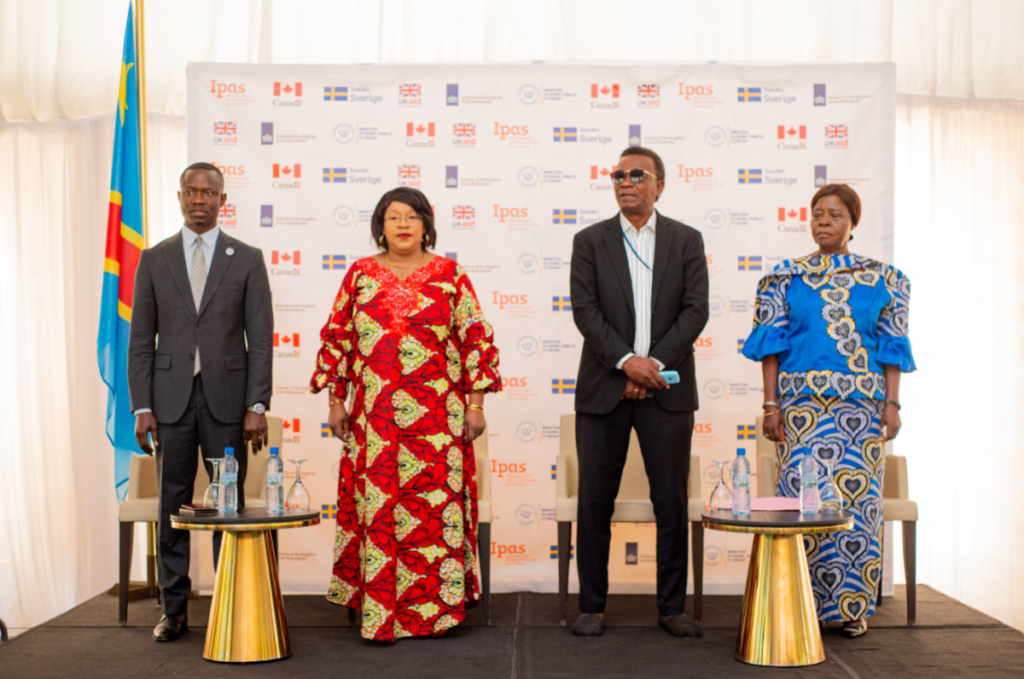KINSHASA, DRC, 29 May 2024 /African Media Agency (AMA)/- Her Excellency, the Minister of Gender, Family and Children, Mireille MASANGU BIBI MULOKO officially launched the process of drafting the second state report on the implementation of the Maputo Protocol in the Democratic Republic of Congo (DRC) during a ceremony on Tuesday, May 21, 2024, at the Pullman Hotel.

The official launch of the drafting process, also supported by Ipas DRC, a non-governmental organization working in the field of sexual and reproductive health, is in compliance with the obligation of States Parties to report on the implementation of the Maputo Protocol through periodic reports (every two years) to the African Commission on Human and Peoples’ Rights of the African Union (ACHPR).
The second periodic state report will provide information on the implementation of the Maputo Protocol in the various provinces from 2016 to 2023, addressing the challenges and opportunities related to the promotion and protection of women’s rights in the DRC.
The Maputo Protocol, adopted in 2003 is a regional legal instrument aimed at promoting and protecting women’s rights in Africa ratified by the DRC in 2008 and then published in 2018 in the Official Gazette. It addresses a wide range of sensitive issues, including the elimination of all forms of discrimination and violence against women, access to justice, education, health, employment, political participation, and sexual and reproductive rights. Following a lengthy advocacy process led by women’s organizations and women’s rights networks, the DRC ratified the Maputo Protocol on July 11, 2008.
The Maputo Protocol, which contributes to women’s economic and political empowerment as well as their health and well-being, is the first pan-African treaty to expressly recognize abortion as a human right in specific circumstances: sexual assault, rape, incest, fetal abnormalities endangering the life of the fetus, and continued pregnancy endangering the woman’s mental and physical health or her life. Access to safe abortion is a response to every woman and girl’s right to dispose of their bodies, without discrimination.
In her opening remarks, H.E. Mireille MASANGU BIBI MULOKO, Minister of Gender, Family and Children said that “since the publication of the Maputo Protocol in the Official Gazette, the DRC has made a lot of progress in its domestication, especially with regard to health and reproductive rights. Through the periodic report, these advances deserve to be capitalized on and shared with other African nations.”
The second cumulative report of the DRC should report on the general situation of women, from the submission of the first report in 2016 to the present day, focusing on the recommended themes, namely gender equality, and non-discrimination, the protection of women against all kinds of violence, marriage rights, health and reproductive rights, economic, social and cultural rights, the right to peace, the protection of women during conflicts, the rights of widowed, disabled and distressed women.
Mrs. Florence BOLOKO, National Coordinator of the Study and Planning Unit for the Promotion of Women, the Family and Child Protection, the structure in charge of piloting the process of drafting report, presented the next step after the ceremony, which will be “organizing capacity building workshop for the experts in charge of data collection, in Kinshasa and the provinces, monitoring and analysis of field data collection, and the drafting of the final report which will be validated by all stakeholders before its transmission. »
It is in this line that Alphonse TSHIKIA, Deputy National Coordinator of CEPFE presented the guidelines issued by the African Union for the preparation of the periodic state report as well as the roadmap.
Since 2022, CEPFE has obtained the commitment of the international NGO Ipas to support the drafting of the second state report, so as Dr. Jean-Claude Mulunda, Country Director of Ipas DRC, said, “we look forward to seeing in an official and documented way the progress made together with other technical and financial partners, civil society, women- and young-led organizations, people with reduced mobility organizations and journalists coalition. We will continue to work together to fully implement the Maputo Protocol and improve the living conditions of women and girls in our country.”
Distributed by African Media Agency on behalf of Ipas.
About Ipas/DRC :
Ipas Impact Network works on five continents with a comprehensive approach that centers on the needs of those who seek abortion care. Specifically, since 2018 Ipas DRC has worked to build sustainable abortion ecosystems that address all factors impacting a person’s ability to access abortion—from individual health knowledge to social and community support, to a trained health workforce, to political leadership and supportive laws.
Inquiries:
Habygaelle Muzie, Communication Manager, muzieh@ipas.org

